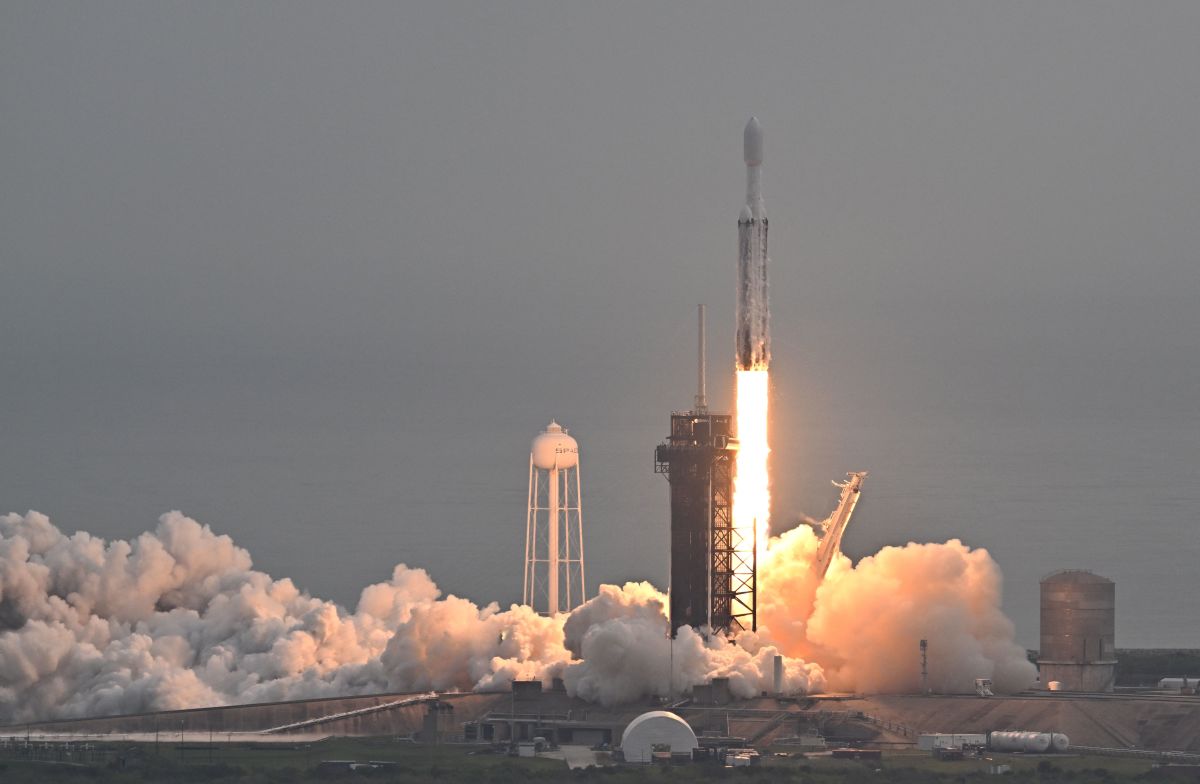
By all accounts, SpaceX has recorded yet another record-breaking year. The aerospace company successfully sent another 23 Starlink satellites into orbit on Wednesday, officially completing its 80th launch of the year. The company said that it has now delivered more than 1,000 metric tons of mass to orbit for the year.
In 2022, SpaceX, launching 61 rockets, set a record for the most orbital missions launched by a private company in a single year. The company said in October that it is hoping to launch 100 rockets by the end of 2023, a goal that would require a slight boost in launch activity to achieve.
CEO Elon Musk, however, wants to set an even bigger record for 2024.
Related: Elon Musk's SpaceX clocks a $1.3 billion government win, hits big financial milestone
SpaceX, he said, launches once every three days out of Florida — the actual rate, with 80 launches over the past 311 days, is closer to once every 3.8 days. In 2024, Musk said, the company is targeting one launch every two days.
Falcon 9 launches 23 @Starlink satellites to orbit from Florida. We’ve now launched 80 times in 2023, delivering more than 1,000 metric tons to orbit pic.twitter.com/fsrVKW8K9x
— SpaceX (@SpaceX) November 8, 2023
If SpaceX can maintain that rate throughout the year, that would break down to about 180 launches for 2024, a number that could about double the company's 2023 launch numbers.
This bold prediction comes a few weeks after SpaceX's vice president of build and flight reliability, Bill Gerstenmaier, told a U.S. Senate Subcommittee that the company is targeting roughly 144 flights, or 12 flights per month, for 2024.

Led by a strong effort from SpaceX, the global aerospace industry has been increasing its launches at a fast rate over the past few years. While that may be good news for Musk's ever-growing Starlink constellation, there remain a couple of severe drawbacks to an already-warming world that is regularly increasing its rocket launches.
A 2022 study found that a significant increase of rocket launches would likely result in the injection of thousands of tons of soot into the upper layers of the atmosphere, warming those layers and weakening the protection of the ozone layer.
"We need to learn more about the potential impact of hydrocarbon-burning engines on the stratosphere and on the climate at the surface of Earth," Christopher Maloney, a research scientist at NOAA’s Chemical Sciences Laboratory and lead author of the study, said in a statement at the time.
Related: One of Tesla Chief Musk's other ventures eyes $15B revenue for 2024
Musk's bullish projection for the next year of SpaceX comes about a week after he said that Starlink has officially become cashflow positive.
SpaceX is set to bring in around $9 billion in revenue for the year, a number the company expects to spike to $15 billion in 2024. This year-over-year spike will be led by Starlink, which Musk is constantly working on expanding.
The satellite internet service alone could bring in $10 billion of the total $15 billion that is expected.
In 2021, Starlink brought in $222 million in revenue, a number that jumped to $1.4 billion in 2022.
Despite this, Musk has come under fire for the role he — by virtue of owning and operating his Starlink satellite internet constellation — played in seeming to control part of the Ukraine military's offensive in 2022.
And all eyes remain fixed on Starship, SpaceX's latest launch vehicle, which has been tied up in regulatory proceedings since its April test launch ended in an explosion minutes after takeoff. The company is targeting mid-November for its much-anticipated second flight of the world's most powerful rocket.
Related: SpaceX CEO Elon Musk's latest move in Gaza mirrors his position with Ukraine
Action Alerts PLUS offers expert portfolio guidance to help you make informed investing decisions. Sign up now.







